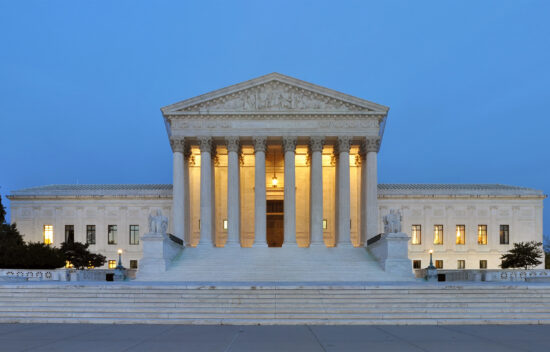 External Post
External PostShould the United States Government Have Ended the COVID-19 Public Health Emergency Declaration?

On May 11th, the federal government ends the COVID-19 public health emergency declaration. When the pandemic first began, the declared state of emergency gave the government the authority to quickly direct funds to areas where it was most needed. Some were critical of the sweeping authority it gave the government, while others argued that it was a necessary measure to stop the pandemic. Now that the state of emergency is ending, the emergency funds will also end, prompting discussions over if doing so is the best decision.
Those who argue that the government should end the public health emergency declaration believe that to continue living under an “emergency” status would allow for our system of separation of powers to be compromised. They may argue that it is acceptable for the executive to gain increased authority during a crisis, but they contend that COVID-19 is no longer a concern for most Americans. This side also claims that continuing to call COVID-19 an “emergency” will make people apathetic to the next time a crisis occurs since the word will have lost its meaning.
Those who argue that the United States Government should not have ended the public health emergency declaration believe that it is too soon to do so. They point to the statistic that hundreds of Americans still die from COVID-19 each week. They also argue that COVID-19 has had a disproportionately larger impact on the lower-income population. They contend that ending the state of emergency will end policies like free test kits and expanded health coverage to uninsured people.
So, what do you think? Should the United States Government Have Ended the COVID-19 Public Health Emergency Declaration? Students can answer Yes, it should; No, it should not; or a nuanced answer in between! Be sure to submit your answers to our final Think the Vote question of the year by May 24th.
Note: Ideal Think the Vote responses include the following:
- Address the question asked in a thoughtful and meaningful manner
- Use cited facts and constitutional arguments when appropriate to support their answers
- Are expressed in cohesive sentences and are free of distracting spelling, punctuation, and grammatical errors
- They address counterarguments and opposing concerns in a respectful manner
- They organize their answer in a manner that flows logically and reads clearly
JOIN THE DEBATE BELOW FOR A CHANCE TO WIN A $1,000 CASH SCHOLARSHIP!
For this question, BRI will be giving away two $25 gift cards, one to each person providing the best defense of each side of the debate. Both students will also win BRI swag. Each student winner will also be entered for a chance to win a grand prize of a $1,000 cash scholarship. Additionally, the referring teachers for both students will each win a $25 gift card and BRI swag.
This question will run from 5/11/23 to 5/24/23, so be sure to submit your answers in time to be considered for our prizes!




